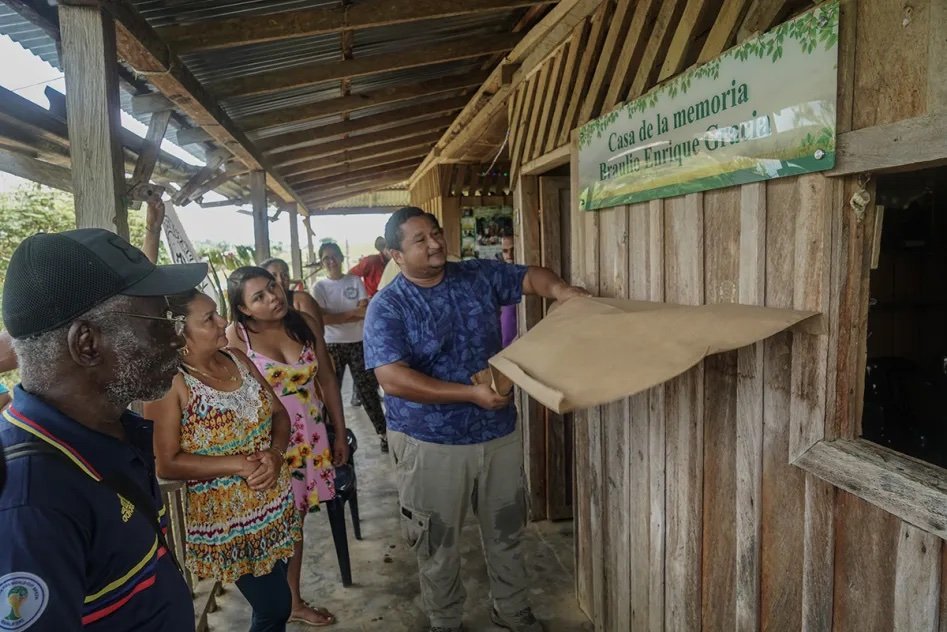Escalating Violence in Colombia Warrants International Support
The Northeast Antioquia region, located in northwestern Colombia, has experienced continued, systematic violence for many years. Between January 1, 2022, and the present, 33 murders of human rights defenders have been registered and 20 massacres have been conducted. Despite this violently escalating situation, the Colombian State has not adopted the sufficient and necessary measures to protect human rights defenders, community organizers, or everyday citizens.
The disputed territory, due to its geostrategic position and abundant natural resources, has been characterized by its numerous massacres, bombings, and humanitarian crises since 1998. The coronavirus pandemic and accompanying economic impacts have worsened preexisting social and economic inequalities, leading to an increase in violence. The increased violence in rural areas and some urban areas in 2021 have seriously disrupted the lives of indigenous peoples, peasants, people of African descent, and women.
The Northeast Antioquia region has been experiencing systematic violence for many years.
Photo: PBI Colombia
In late April 2021, structural inequalities (including food insecurity and difficulties in accessing education, healthcare, and jobs) provoked widespread mobilizations of a national strike that lasted for several months. The protestors demanded greater guarantees for the right to peaceful assembly; participation in decision-making; and the reform of the National Police.
The region has experienced an undeniable absence of civilian institutions; the National Army, through the XIV Brigade, is the only state presence. However, this military unit is responsible for innumerable human rights violations and breaches of international humanitarian law, including extra judicial executions.
In 2004, peasant community organizers formed the Humanitarian Action Corporation for Coexistence and Peace in Northeast Antioquia (Cahucopana). Since then, the Corporation has assumed an important leadership role in the region, representing the local community’s capacity for resistance during so many years of violence.
Most recently, the President of Cahucopana, Carlos Arturo Morales, and his wife were shot at by armed men on a motorbike. Cahucopana have been accompanied by PBI in Colombia since 2013, and Morales has armed guards and an armoured vehicle provided by the National Protection Unit (UNP), which were not accompanying him at the time of the shooting.
Carlos Morales, President of Cahucopana
Photo: PBI Colombia
PBI UK is deeply concerned by the recent attack against Morales and the continued humanitarian crisis in Antioquia.
We stress that, to date, there has been no known progress in the investigations or the homicides of civilian organizers or in the creation of preventative measures against this violence. We are particularly concerned about the suspension of human rights monitoring and escalation of this violence ahead of the elections season.


